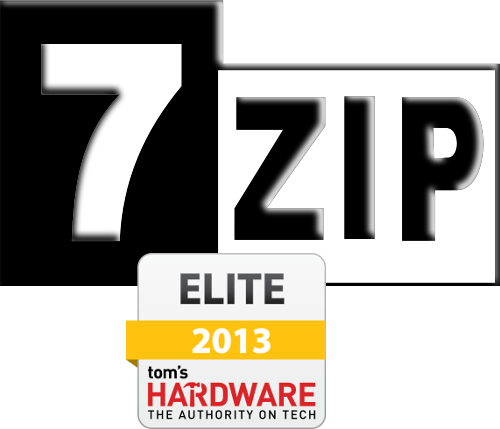Compression Performance: 7-Zip, MagicRAR, WinRAR, WinZip
We're taking a look at the the features, performance, and compression rates of four file archiving and compression tools: the free and open source 7-Zip, the heavyweight WinRAR, the old-school WinZip, and the lesser-known MagicRAR.
And The Undisputed Winner Is...
Why you can trust Tom's Hardware
7-Zip is the clear performance winner of our file archiving and compression tools round-up. It sets the standard for both compression ratio and time with its very own 7z compression format. It manages to beat MagicRAR, WinRAR, and WinZip for the best compression ratio, even with its Fastest Compression setting enabled. 7-Zip is also a lot faster than the competition if the LZMA2 algorithm is used. It took 7-Zip only 25 seconds to compress our benchmark files and folders with Hyper-Threading enabled. Meanwhile, WinRAR took 44 seconds, WinZip 51 seconds, and MagicRAR an arduous 159 seconds.
If the priority is to get the smallest archive files possible, 7-Zip does it faster than the competition. If the priority is for the lowest archiving time, 7-Zip still yields smaller files. So, no matter which aspect of file compression you deem most important, 7-Zip is a clear choice. Another reason to choose it over the competition is that it demonstrates the most significant gains from threading. In our tests, Hyper-Threading demonstrated those benefits, but you'll also see better numbers if you opted for an FX-8320 over an FX-6300, both at 3.5 GHz. If that wasn't enough, 7-Zip has a pretty big price advantage, too. As a FOSS application, 7-Zip is free, while the competition will set you back at least $25.
Although we don't often dust off awards for software, due to its superior performance in both speed and compression, and a price tag that just can't be beat, we're awarding 7-Zip the coveted Tom's Hardware Elite award.
WinRAR and WinZip can’t quite keep up with 7-Zip’s compression speed, through they’re still pretty fast and have the added advantage of supporting the two most common compression formats, ZIP and RAR. WinZip also scores some points by being the only program in our round-up that offers social media and cloud functionality. Those are the kinds of value-adds that many people will appreciate, though we can't really quantify them.
While an argument favoring WinRAR and WinZip could be made based on their own proprietary compression formats, real-world performance shows that this doesn't make a significant difference. The reality is that each of these archiving and compression tools can support each others' proprietary formats in addition to a large number of others. But ultimately, old habits die hard, and it’s often still a good idea to send around archives you need to share as a ZIP file, rather than one of the less common formats.
Buying MagicRAR only makes sense if you regularly encounter uncommon archive formats. MagicRAR’s plug-in architecture is very useful for this, because new compression formats can be added on the fly. Unfortunately, this appears to be MagicRAR’s only advantage. Sure, it can compress files and folders, but it does so very slowly. And when we say very slowly, we mean very slowly. For example, WinZip takes 36 seconds to compress our benchmark files and folders into a ZIP file with default settings and Hyper-Threading disabled. Meanwhile, MagicRAR takes 284. Hard as it might be to believe, performance gets even worse with other compression formats. We didn't put those numbers into our charts because the competing apps would have had such short bars that you wouldn't have been able to tell them apart. What's more, MagicRAR is the only file archiving and compression tool in the round-up that's single threaded. So, it runs slower with Hyper-Threading enabled, and it doesn't scale based on the number of cores on your CPU. At least as a compression tool (MagicRAR actually includes a number of different utilities), we don't think this one stands apart.
Current page: And The Undisputed Winner Is...
Prev Page WinZip: OpenCL Versus CPU PerformanceGet Tom's Hardware's best news and in-depth reviews, straight to your inbox.
